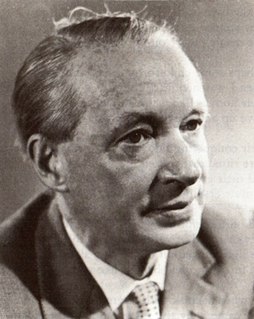A Quote by William Shakespeare
Related Quotes
Man and his deed are two distinct things. Whereas a good deed should call forth approbation and a wicked deed dis-approbation, the doer of the deed, whether good or wicked always deserves respect or pity as the case may be. Hate the sin and not the sinner is a precept which though easy enough to understand is rarely practised, and that is why the poison of hatred spreads in the world.
The attempt to live that way, the attempt to treat everybody - it fails all the time - but the attempt to treat people as equals is a good attempt. It's a very good attempt. And there have been very few governments that have come anywhere near it in the past. The Greeks began to, the Romans began to - they both failed.
Every morning, I shall concern myself anew about the boundary, Between the love-deed-Yes and the power-deed-No, And pressing forward honor reality. We cannot avoid, Using power, Cannot escape the compulsion, To afflict the world, So let us, cautious in diction, And mighty in contradiction, Love powerfully.
A good deed, "said the prophet Mohammed, "is one that brings a smile of joy to the face of another." Why will doing a good deed every day produce such astounding efforts on the doer? Because trying to please others will cause us to stop thinking of ourselves: the very thing that produces worry and fear and melancholia.




































